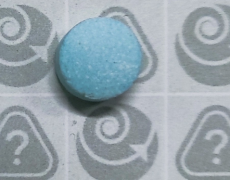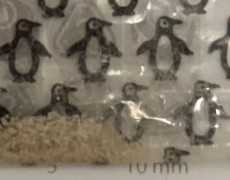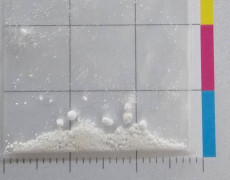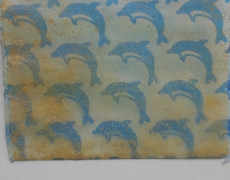Misrepresented MDMA linked to serious harm in Whanganui area
-
Notification
-
Unknown
-
- Whanganui
An unknown brown powder being sold as MDMA has been linked to serious harm events in the Whanganui area.
How to identify the drug
- Brown powder
- Sold in small plastic snap lock bags
This notification is to advise that we've identified three serious harm events in the past 12 hours believed to be linked to the consumption of an unknown brown powder sold as MDMA in the Whanganui area. The symptoms identified are not consistent with a typical MDMA overdose and the substance appears to have been adulterated or misrepresented
High Alert strongly urges people not to take any unknown powders or tablets. Testing is recommended to help lower the risks.
KnowYourStuffNZ and the NZ Drug Foundation run drug checking clinics across the country to help reduce harm - check the schedule here.
If you or someone you know takes a substance thought to be MDMA and starts to feel unusual effects, get to hospital or call 111 immediately. Be honest about your drug use, you won’t get in trouble and it could save your life.
If you have heard of any reports of this drug, please let us know! The alert ID is N22/0028. All submissions are anonymous.
How to recognise symptoms from the drug:
It is currently unknown which substance is responsible for this harm, however reported symptoms are:
- Rapid heart rate
- Vomiting
- Difficulty breathing
- Faintness
- Heart palpitations
- Loss of consciousness
MDMA type substances can be adulterated/misrepresented, with numerous examples previously reported to High Alert. Synthetic cathinones, such as dimethylpentylone, are known to be in circulation in New Zealand.
In December, High Alert issued a notification after dimethylpentylone was misrepresented as MDMA and resulted in reports of negative experiences.
How to reduce harm from the drug:
The worry is that this substance may continue to be sold as MDMA. It is unknown how widespread the circulation of this powder is.
High Alert urges extreme caution at this time. Do not take any unknown powders. You cannot be sure the substance you have is MDMA by sight or smell. Testing is recommended to help minimise the risk. KnowYourStuffNZ and the New Zealand Drug Foundation are running regular drug checking clinics across the country – you can find a calendar of upcoming events here.
While not taking any unknown powder is the safest option, the New Zealand Drug Foundation advises there are a couple of things you can do to lower the risks:
- Don't take anything alone. Have a buddy who can help, and call an ambulance, if things go wrong.
- Lower doses are less risky. Start off with a small amount to check how it affects you.
- Swallowing the substance has a slower onset than other methods and means there is more time to get medical help if needed.
- Avoid mixing with other substances, especially other stimulants (e.g. energy drinks, amphetamines), alcohol, and prescription medications (especially anxiety and depression medications).
- Avoid re-dosing or allow more time in between.
- Seek immediate medical attention if you or someone else has a racing heart or other unusual symptoms after taking this substance.
If you think someone is suffering a medical emergency, call 111 immediately and ask for an ambulance. Always tell emergency responders what someone has taken – you won’t get in trouble, and it could save a life.
Always call an ambulance if someone:
- is unconscious
- stops breathing
- has a seizure
- is extremely agitated for longer than 15 minutes
- has chest pain or breathing difficulties for longer than 5 minutes.
If you have heard of any reports of this drug, please let us know through the Report unusual effects page, the alert ID is N22/028. All submissions are anonymous.
Stay safer by staying informed. Sign up to receive alerts and notifications about any dangerous drugs in NZ. Check out the alerts page to see what we've already found.
Are you concerned about your own drinking or drug taking? Reach out to the Alcohol Drug Helpline on 0800 787 797, or text 8681. You'll be able to speak with a trained counsellor who can provide you with helpful information, insight and support. They’re available 24/7, all calls are free and confidential.
You can also chat to the Alcohol Drug Helpline team online through the website, or:
- Call the Māori Line on 0800 787 798 for advice and referral to kaupapa Māori services.
- Call the Pasifika Line on 0800 787 799 for advice and referral to services developed for Pacific people.
- Call the Youth Line on 0800 787 984 for advice and referral to services for young people.
Latest Alerts & Notifications

Highly potent synthetic opioid detected in fake diazepam tablet

Alpha-PVP like substance misrepresented as MDMA in Christchurch

Heroin sold as ketamine in Auckland region

Highly potent synthetic opioid misrepresented as butonitazene

